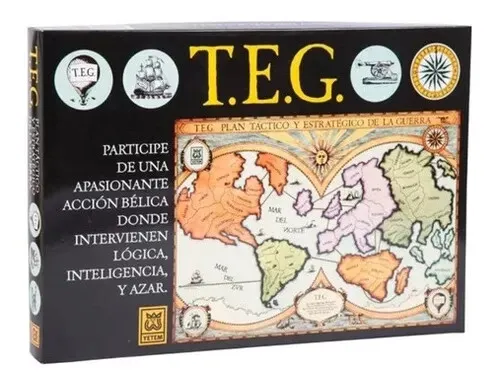TEG
TEG
“Plan Táctico y Estratégico de la Guerra” (TEG) is an Argentinian strategy board wargame published in 1976. The game was created by Marcelo M. Konrad, who initially developed it as a cardboard prototype before eventually publishing it. TEG is based on the game Risk and follows a similar gameplay, featuring a board divided into different regions and sub-regions, along with the use of dice to determine battle results.
Why is TEG Popular?
TEG has become a classic board game in Argentina and has been embraced by generations of players. Its popularity can be attributed to its strategic gameplay, which challenges players to use tactics, strategy, and negotiation skills to control territories and defeat opponents. Additionally, the game has been featured in popular culture, such as the film Kamchatka, further increasing its visibility and appeal.
We are supported by our audience. When you purchase through links on our site, we may earn an affiliate commission, at no extra cost for you. Learn more.

